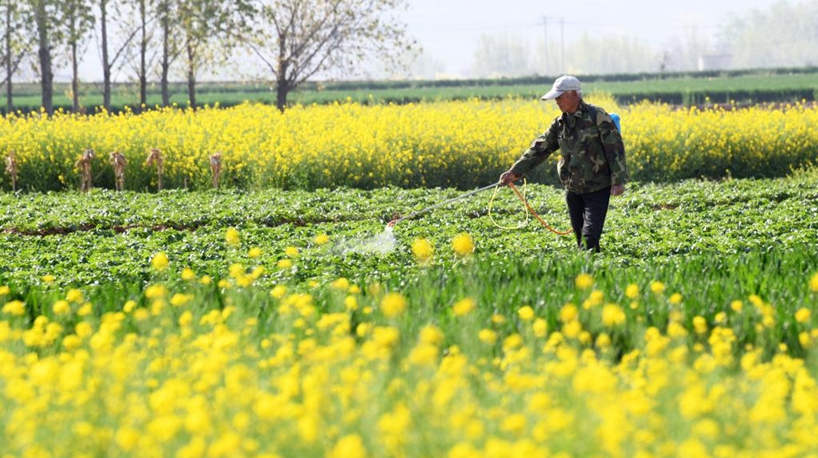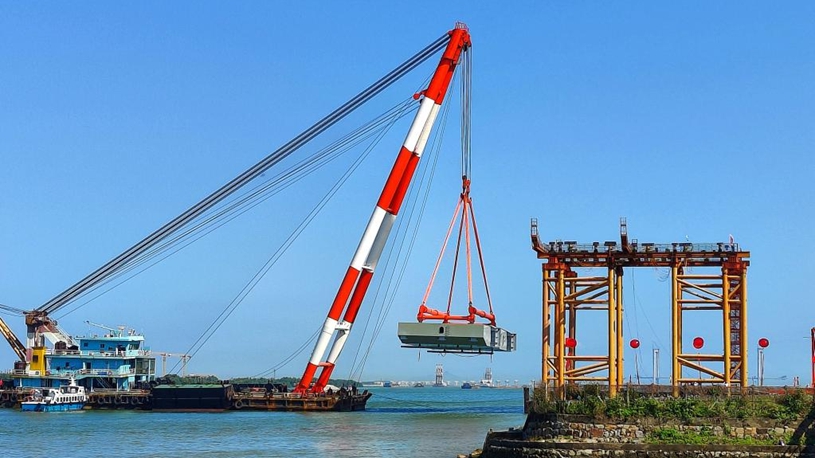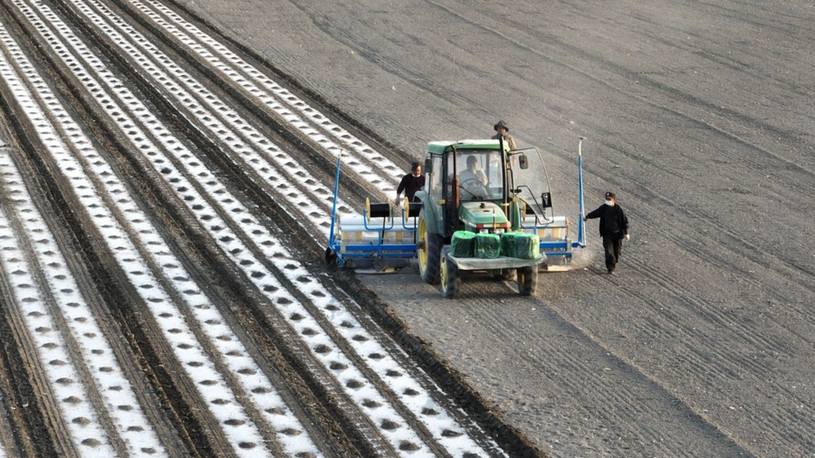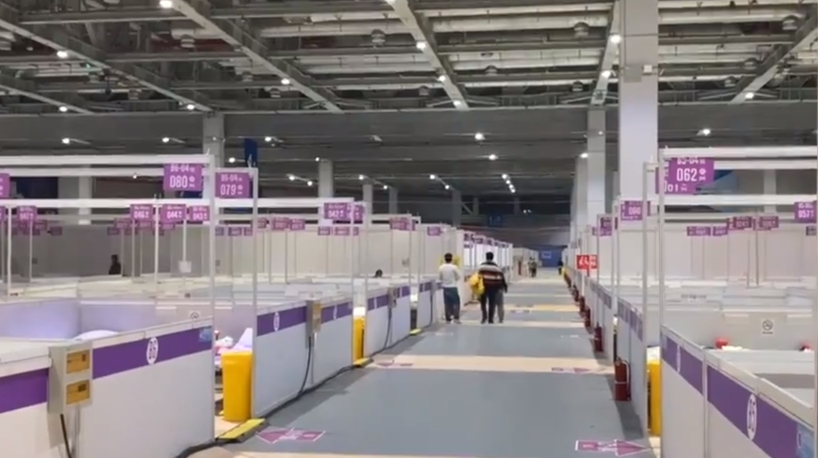*While adopting rigorous and requisite measures to curb the COVID-19 resurgences, China is going all out to minimize the impact on the economy and stabilize supply and industrial chains.
*To help transport goods to and from the megacity of 25 million people, Taicang Port in the city of Suzhou, which is about 50 km away, has boosted the number of voyages to Shanghai Port since March.
*Despite the resurgence of the COVID-19, foreign enterprises are actively coordinating with local authorities, suppliers, logistics companies, freight drivers, and customers.
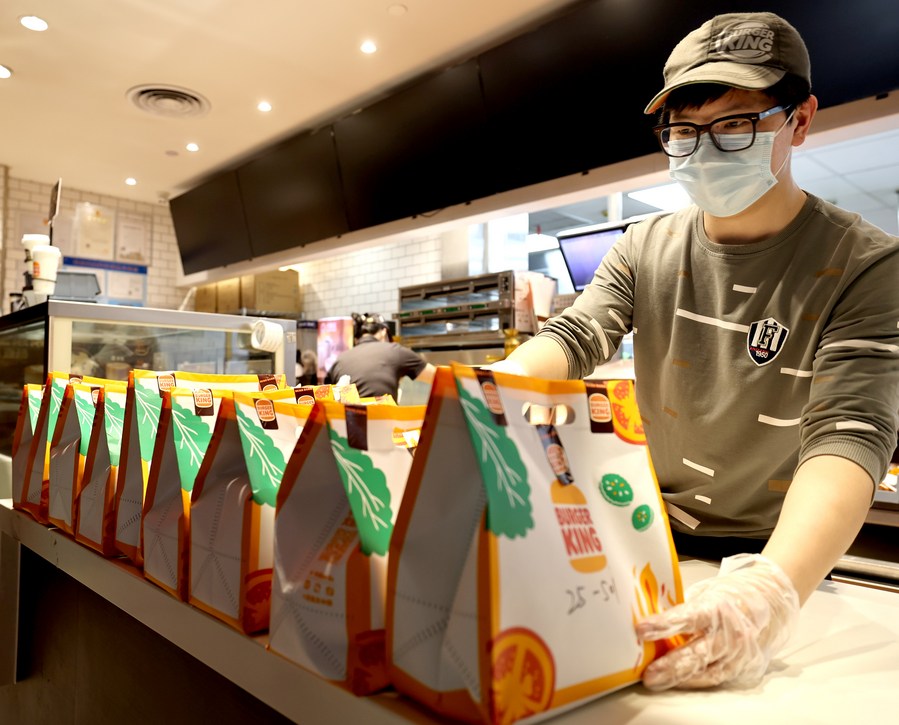
An employee prepares online orders for delivery at a Burger King store in east China's Shanghai, April 10, 2022. (Xinhua/Chen Jianli)
BEIJING, April 15 (Xinhua) -- While adopting rigorous and requisite measures to curb the COVID-19 resurgences, China is going all out to minimize the impact on the economy and stabilize supply and industrial chains.
At a factory of automobile parts technology company Aptiv in Shanghai's Jiading District, automotive connectors were rolling off the assembly lines. Thirty percent of them were bound for Europe and the United States.
"The factory has not ceased production since the latest outbreak," said Shen Guoliang, general manager of Aptiv's Connectors China Division.
Despite problems such as disturbed trans-provincial logistics, authorities have taken measures to ensure the supply of raw materials and daily necessities, and the company also docked with suppliers in advance to keep the core production line working, according to Shen.
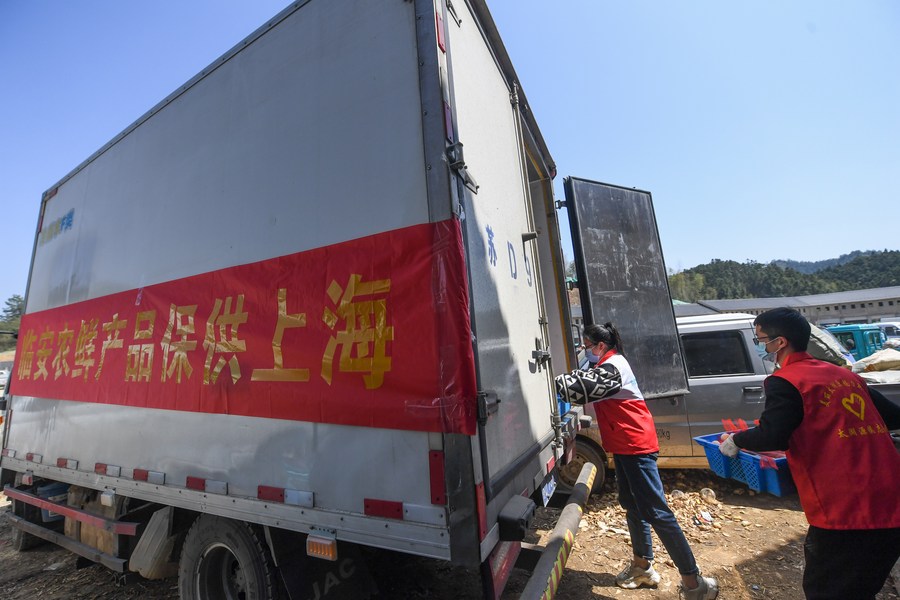
Volunteers load bamboo shoots to a cold-chain truck for Shanghai in Taihuyuan Township of Lin'an District of Hangzhou, east China's Zhejiang Province, April 7, 2022. (Xinhua/Xu Yu)
GUARANTEED LOGISTICS
China on Thursday reported 3,472 locally-transmitted confirmed COVID-19 cases and 20,694 local asymptomatic carriers, according to the National Health Commission. Shanghai alone registered 3,200 local confirmed cases and 19,872 local asymptomatic infections, making it the hardest hit city where stringent closed-off management has been adopted.
To help transport goods to and from the megacity of 25 million people, Taicang Port in the city of Suzhou, which is about 50 km away, has boosted the number of voyages to Shanghai Port since March.
Due to the slowdown of road transport caused by the COVID-19 outbreaks, a growing number of enterprises in Shanghai and Suzhou are transferring containers by water through a green channel promoted by the Taicang and Shanghai ports.
The switch from road to water transport helped goods efficiently arrive at and depart from Shanghai Port.
Since March, Taicang Port has added seven ships and 150 voyages to and from Shanghai Port. It is also providing freight services around the clock to ensure commodities can be transferred from Taicang Port to Shanghai's ports within 48 hours, according to the Taicang Port Administrative Committee.
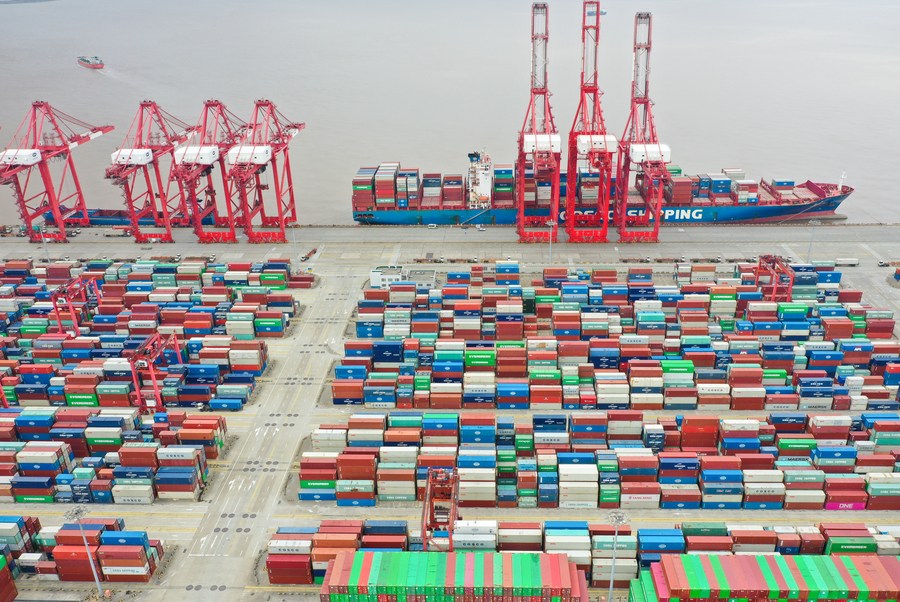
Aerial photo taken on April 15, 2022 shows a view of Shanghai's Yangshan Port in east China. (Xinhua/Ding Ting)
In the period, a total of 59,132 TEUs of containers have been transported via the waterway, an increase of 68 percent year on year.
The cargo throughput of China's busiest port, the Port of Ningbo Zhoushan in the eastern province of Zhejiang, reached 303 million tonnes in the first quarter of 2022, up 3.4 percent year on year, data from the provincial port and navigation management center showed.
During the same period, the port's container throughput surpassed 7.9 million twenty-foot equivalent units (TEUs), a 2.9 percent year-on-year increase.
Since 2022, the port has opened new ocean-going ship routes toward Europe, South America and other directions. The number of container routes has reached a record high of 296.
In the first quarter, the port has seen a sea-rail combined transport business volume of 357,800 TEUs, a year-on-year increase of 33.9 percent.
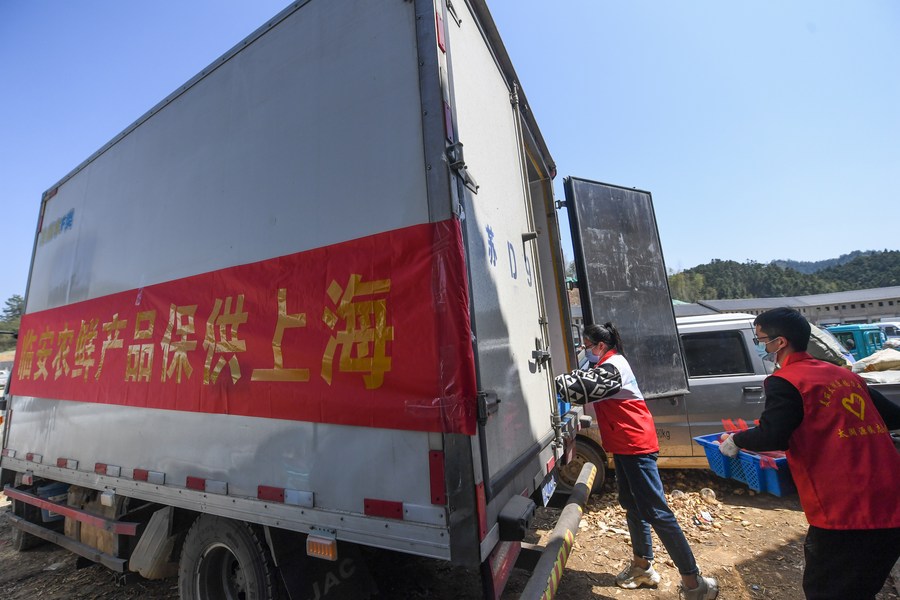
Volunteers load bamboo shoots to a cold-chain truck for Shanghai in Taihuyuan Township of Lin'an District of Hangzhou, east China's Zhejiang Province, April 7, 2022. (Xinhua/Xu Yu)
STABLE INDUSTRIAL CHAIN
SIG Combibloc Group, a leading systems and solutions provider for aseptic packaging, set up a wholly-owned subsidiary in the Suzhou Industrial Park in 2002. Fan Lidong, general manager of the company in Suzhou, said that the company established an "epidemic response committee" early in 2020.
In the face of the new round of outbreaks, Fan said they do have pressure in logistics and transportation, but they are also actively coordinating with local authorities, suppliers, logistics companies, freight drivers, and customers.
"The park's management committee set up a WeChat group to communicate with enterprises, and their staff would reply to and solve the problems raised by enterprises in a timely manner," said Fan.
To ensure normal production, the company has also increased the storage of raw materials and further promoted the procurement of local raw materials and spare parts.
"If there is a severe COVID-19 situation, we will separate the operation of two plants in Suzhou to ensure that one can continue to operate even if the other is affected," said Fan.
The northeastern province of Jilin, where tens of thousands of infections have been registered since March, cut off all COVID-19 transmission chains out of its quarantine areas on Thursday. China FAW Group Co., Ltd.'s joint ventures FAW-Volkswagen and FAW Toyota and its truck subsidiary FAW Jiefang began their resumption of work and production.
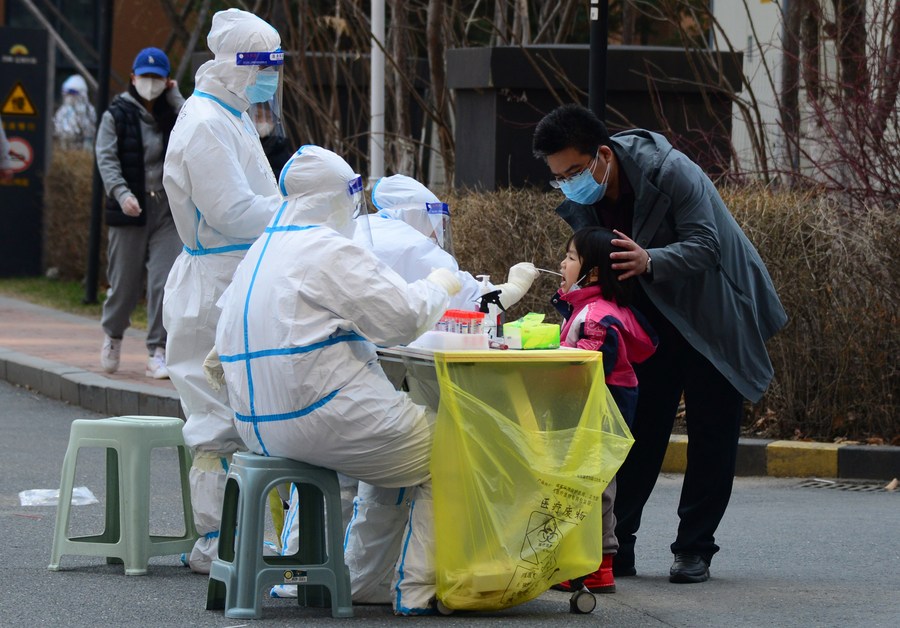
A medical worker takes a swab sample from a child for nucleic acid test at a COVID-19 testing site in Changchun, northeast China's Jilin Province, April 14, 2022. (Xinhua/Zhang Jian)
Shu Bo, deputy head of FAW Hongqi's Weishan Factory, said they have formulated plans to adopt closed-loop management, nucleic acid testing, and on-site disinfection to ensure that employees get effective protection.
FAW Group sold 3.5 million vehicles in 2021, with its revenue hitting 707 billion yuan (about 110.6 billion U.S. dollars), up 1.4 percent year on year.
As a pillar enterprise of Jilin Province and an important part of domestic and global automotive industrial chains, FAW Group's work resumption will play a positive role in guaranteeing the stable operation of the auto industry, said Cui Dongshu, secretary general of the China Passenger Car Association.
(Video reporters: Cui Li, Sun Qing; video editors: Lin Lin, Zhang Yuhong) ■




